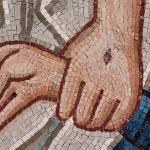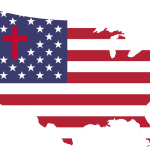Evangelicals make an appearance in a good deal of the writing about religion and prisons, and they usually don’t look too good. To reference just two examples, evangelicals are often linked to the rise of the prison industrial complex either in their seemingunwillingness to challenge its growth or, as Winnifred Fallers Sullivan writes about one evangelical prison ministry, in their inherently complementary nature:
Whether one can conclude that dominant contemporary Christian theologies of punishment actually contributed directly to the increased punitive nature of U.S. society, there is no question that the two are culturally congruent and mutually recognizable (101).
But what if the linkage between evangelicalism and the post-1960s rise of mass incarceration (as well as the “law and order” rhetoric and politics that undergirds it) isn’t so clear cut? To be sure, there were some conservative Protestants very much in support of making laws tougher and punishments harsher. In general, these evangelicals would fall under the broad Christian Right umbrella, seen most prominently in groups like the Moral Majority and in leaders like Jerry Falwell. The Christian Right saw recovering law and order as part and parcel of their broader culture war agenda from the 1970s onward. Jerry Falwell penned newspaper columnsthat lamented how “Crime is epidemic” and that “Criminals are better protected by the law than the people on whom they prey.” His organization hosted rallies for political candidates that promised to toe the law and order line. The Moral Majority also successfully pushed Congress to get tougher on crime, calling for stiffer penalties and use of the death penalty while causing some congressmen to withdraw their support for bills that would have taken criminal laws in a less harsh direction.[1]
Thus far it would seem that the prison industrial complex and modern evangelicalism are indeed comfortable bedfellows (though it is important to remember that similar “tough on crime” efforts showed up in American culture from all sides of the political spectrum). But this story is an incomplete one, for some evangelicals fought harsh retributive rhetoric and questioned “tough on crime” policies. Though I’m exploring multiple ways that evangelicals challenged the criminal justice status quo in my research, here I will simply discuss one, a misunderstood figure who often is lumped in with the Christian Right by both scholars and popular critics: Charles “Chuck” Colson.
Read the rest here















